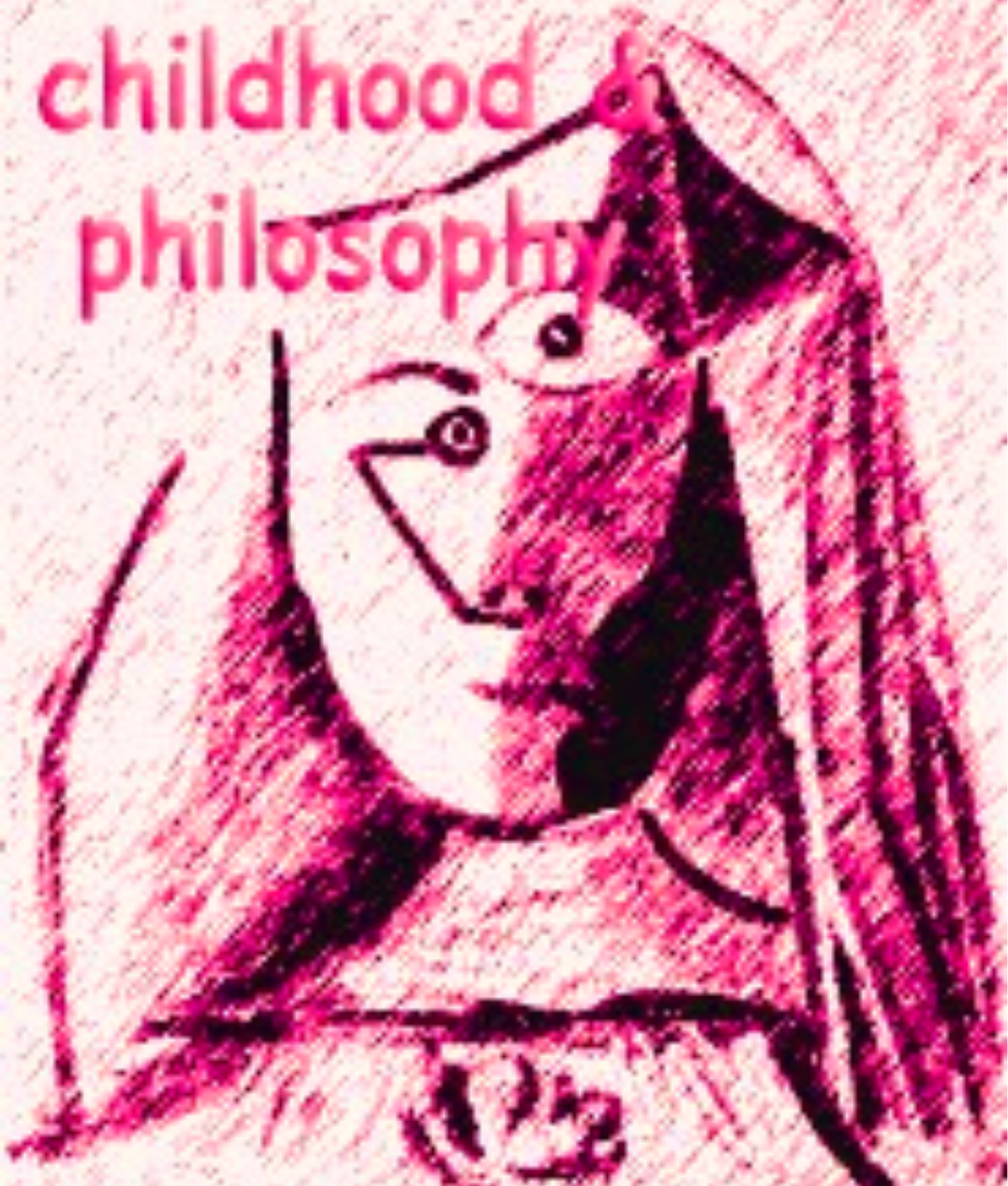philosophy for children as a form of spiritual education
DOI:
https://doi.org/10.12957/childphilo.2022.69865Keywords:
philosophy for children, spirituality, spiritual experienceAbstract
In the last two decades, some authors in the philosophy for children movement have theorized that the community of philosophical inquiry can be a form of spiritual practice, of the care of the self, or a wisdom practice (De Marzio, 2009; Gregory, 2009, 2013, 2014;Gregory & Laverty, 2009). Yet, it is unclear if philosophy for children is, by itself, a form of spiritual education, or if it requires some sorts of modification to be one. And, if it is or can be a form of spiritual education, we can interrogate in what ways and to what extent is it one. It is these questions that this text aims to explore. To do so, we will first clarify the meaning of spiritual education through the presentation of two authors who have explicitly written on that topic. The first is Parker J. Palmer, who has developed a perspective on what it means to reclaim the spiritual roots of education, derived from his study and practice of Quaker spirituality. The second is Pierre Hadot, who has explored how the practice of philosophy in Western antiquity was a form of spiritual exercise. From our presentation of these two authors will emerge a particular perspective of what spiritual education means. In the last section of the text we will use this presentation to examine in what ways philosophy for children can be a form of spiritual education and if requires adaptations to be one.Downloads
References
Beaudry, N. (2016). Synthèse sur l'humanisme. In: C. Raby & R. Viola (Eds.), Modèles d'enseignement et théories d'apprentissage : Pour diversifier son enseignement (2 ed., pp. 194-202). Anjou, Québec: Éditions CEC.
Blond-Rzewuski, O., Budex, C., Chirouter, E., Galichet, F., Pettier, J.-C., Sasseville, M., . . . Tozzi, M. (2018). Pourquoi et comment philosopher avec des enfants? Paris: Hattier.
De Marzio, D. (2009). Dialogue, the care of the self and the beginning of philosophy. Thinking: the journal of philosophy for children, 10(4), 10-16.
De Marzio, D. (2011). What happens in philosophical texts: Matthew Lipman’s theory and practice of the philosophical text as model. childhood & philosophy 7(13), 29-47.
Fletcher, N. M., Gregory, M. R., Shea, P., & Sykes, A. (2021). The story circle as a practice of democratic, critical inquiry. childhood & philosophy, 17, 01-42.
Golding, C. (2017). Getting better ideas: A framework for understanding epistemic philosophical progress in Philosophy for children. In M. Gregory, J. Haynes, & K. Murris (Eds.), The Routledge international handbook of Philosophy for Children (pp. 65-73). London: Routledge, Taylor & Francis Group.
Gould, P. D. (2010). 'Creating a space in which the community of truth is practiced': Reflections on dimensions of teaching. Journal of Philosophy and History of Education, 60, 47-51.
Gregory, M. (2008). Philosophy for children: Practitioner handbook. Upper Montclair: Institute for the Advancement of Philosophy for children.
Gregory, M. (2009). Ethics education and the practice of wisdom. Teaching ethics, 9(2), 105-130.
Gregory, M. (2013). Wisdom and other aims for precollege philosophy education. In M. Glina (Ed.), Philosophy For, With, and Of Children. Newcastle: Cambridge Scholars Publishing.
Gregory, M. (2014). Éducation morale et pratique de la sagesse. In M.-P. Grosjean (Ed.), La philosophie au coeur de l'éducation autour de Matthew Lipman (pp. 37-66). Paris: Vrin.
Gregory, M., & Laverty, M. (2009). Philosophy and education for wisdom In A. Kenkmann (Ed.), Teaching philosophy (pp. 155-173). London, New York: Continuum.
Gregory, M., & Oliverio, S. (2018). Philosophy for/with Children, religious education and education for spirituality: Steps toward a review of the literature. In F. Garcia Moriyon & R. Robles (Eds.), Parecidos de familia. Propuestas actuales en Filosofía para Niños / Family ressemblances.Current proposals in Philosophy for children (pp. 279-296). Madrid: Grupo Anaya.
Gregory, M. R. (2007). A framework for facilitating classroom dialogue. Teaching philosophy, 30(1), 59-84.
Gregory, M. R. (2021). Philosophy for children and children's philosophical thinking. In A. Pagès (Ed.), A history of western philosophy: In the contemporary landscape (Vol. 5, pp. 153-177). London: Bloomsburry Academic.
Hadot, P. (1995). Qu'est-ce que la philosophie antique? [Paris]: Gallimard.
Hadot, P. (2002a). Exercises spirituels et philosophie antique. Paris: Albin Michel.
Hadot, P. (2002b). What is ancient philosophy? Cambridge, Mass.: Harvard University Press.
Hadot, P., Carlier, J., & Davidson, A. I. (2001). La philosophie comme manière de vivre. Paris: Le Livre de Poche.
Lipman, M. (2003). Thinking in education. New York: Cambridge University Press.
Matthews, G.B. (2022) Whatever became of the Socratic elenchus? Philosophical analysis in Plato. In M.R. Gregory and M.J. Laverty: Gareth B. Matthews, The Child’s Philosopher, pp. 151-161. New York: Routeldge.
Nussbaum, M. (1985) Philosophical books vs. philosophical dialogue. Thinking: The Journal of Philosophy for Children 6(2):13-14.
Nussbaum, M. (2010) Not for profit: Why democracy needs the humanities. Princeton University Press.
Palmer, P. J. (1993). To know as we are known: Education as a spiritual journey (San Francisco: Harper.
Palmer, P.J. (1999). The grace of great things: Reclaiming the sacred in knowing, teaching, and learning. In Steven Glazer (ed) The heart of learning: Spirituality in education (pp. 15-32) .New York: Jeremy P. Tarcher/Putnam.
Palmer, P. J. (2003). Teaching with heart and soul. Journal of Teacher Education 54(4), 376-385.
Palmer, P. J. (2007). The courage to teach: Exploring the inner landscape of a teacher's life (10th anniversary ed.). San Francisco, CA.: Jossey-Bass.
Rilke, R. M. (1993) Letters to a Young Poet, M. D. Herter Norton (trans.). New York: Norton.
Taylor, C. (1992). Grandeur et misère de la modernité. Montréal: Bellarmin.
Taylor, C., & Gutmann, A. (1994). Multiculturalisme : Différence et démocratie. Paris: Aubier.
Topping, K. J., Trickey, S., & Cleghorn, P. (2019). A teacher's guide to philosophy for children. New York: Routledge, Taylor & Francis Group.
Vienneau, R. (2017). Apprentissage et enseignement : théories et pratiques (3e édition. ed.). Montréal (Québec) Canada: Gaëtan Morin éditeur, Chenelière éducation.
William Aylor, M. (2008). Parker Palmer: Paradox and possibility Journal of Philosophy and History of Education, 58, 1-4.




